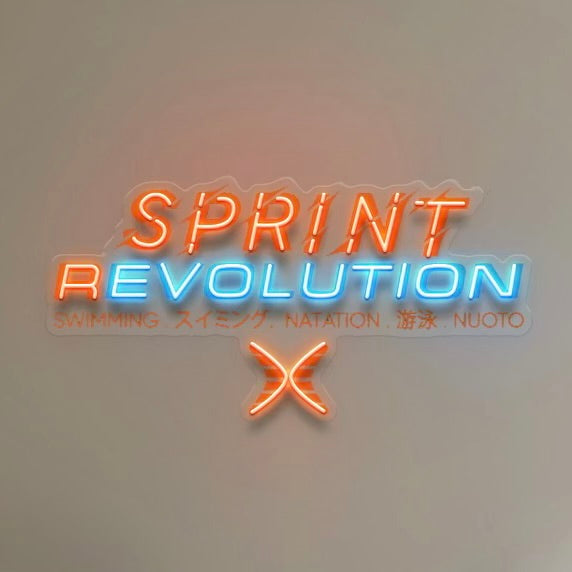- The Swimnerd Newsletter
- Posts
- What it means to be DOGGED with Mollie O'Callaghan
What it means to be DOGGED with Mollie O'Callaghan
“You just have to keep that mindset of I’m still the one hunting still. I’m still hunting for improvement. I’m still hunting because I don’t want those girls catching up to me.”
Help preserve our sport's history by becoming a monthly donor to the International Swimming Hall of Fame like us.
What it means to be DOGGED with Mollie O'Callaghan
Mollie O'Callaghan shares her journey from a rising young swimmer to an Olympic champion, offering insights into how her "dogged" determination and mindset shaped her path. Mollie discusses her relationship with her coach, Dean Boxall, how she navigates media pressure, and her experiences dealing with injury leading up to major competitions. She opens up about the mental and emotional aspects of being an elite athlete, giving a raw and personal look into her life in the pool.
Key Takeaways:
The Meaning of "Dogged" Determination: Mollie reveals how her coach, Dean Boxall, referred to her and her family as "dogged," a word that has since become part of her identity. She didn’t initially understand the meaning of the word but quickly embraced it. Mollie explains, “At first I didn’t really like…know what it meant. Like I was a bit like dogged? But it’s kind of just stuck with me, like in training, my name’s MolDoggy.”
This "dogged" mindset pushes her to strive for excellence in every training session, despite challenges. “I really want to get there (to practice) and I want to make the most of my time,” she adds, showcasing her unrelenting drive.
Handling Social Media and Pressure: One of the standout parts of the conversation is Mollie’s approach to media and social media, particularly during high-pressure moments like the Olympics. She explains how she deleted Instagram before competing to stay focused: “Actually, I wasn’t on social media. Someone was running it for me. So the whole time I deleted Instagram, like maybe two weeks or a week before competing.”
Mollie highlights how being free from distractions helps her focus on performance: “I don’t want to see anything with swimming or about swimming. So yeah, I left it up to [my family] guys.”
Training with Dean Boxall: Mollie talks her experience training with Dean Boxall, known for his intense coaching methods and his ability to tailor workouts to each swimmer’s individual needs. Mollie says, “Dean’s just an amazing coach, you know, he’s really intelligent. He’s wild, he’s crazy...he keeps such a positive environment.” She credits Dean’s ability to constantly innovate the squad as one of the key reasons for her team’s success. Dean doesn’t want everyone to know exactly what he is doing so his swimmers know not to spill the beans during podcasts like this.
The Hunter vs. the Hunted Mentality: One of my favorite moments in the interview is when Mollie discusses the shift in mindset after becoming a world champion and record-breaker. She reflects on what it feels like to transition from being the underdog - "the hunter" - to now being the one with a target on her back - “the hunted”.
She explains, “After the 200 free last year, I knew that Arnie’s going to be hunting me and I knew that the world record was not safe…I’m the one getting hunted now.” Mollie uses this pressure to fuel her performance, saying, “You just have to keep that mindset of I’m still the one hunting still. I’m still hunting for improvement. I’m still hunting because I don’t want those girls catching up to me.”
This moment highlights Mollie's fierce competitiveness and her refusal to become complacent, even as one of the top swimmers in the world.
Overcoming Injuries: Mollie recounts the anxiety she felt when she injured her knee just weeks before the 2023 World Championships. She recalls how she was terrified that her injury would keep her from competing: “I was stretching, and I popped it out while stretching…It never happened before.” Despite the setback, Mollie was determined to compete and says that overcoming this injury made her stronger, noting, “I was absolutely scared…I’d put so much time and dedication into this, I didn’t want to give it up.”
Family Support: I think a lot of swimmers can relate to this. Mollie’s deep appreciation for her family shines through as she talks about their sacrifices to support her career. She particularly highlights the role of her mother, who would drive her to training every day at 4 in the morning. Mollie says, “When I won that Olympic gold, I kind of felt like my mom and dad won it too because, you know, they dedicated such a big amount of time just to get us to that point.”
Enjoy!
Listen on Apple Podcasts
Watch on YouTube
Listen on Spotify
Watch on X
LAST WEEK! ALL SWIMNERD PACE CLOCKS ARE ON SALE!





